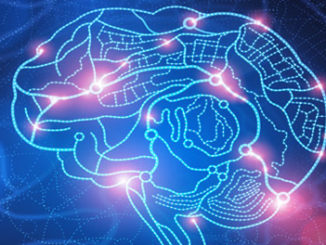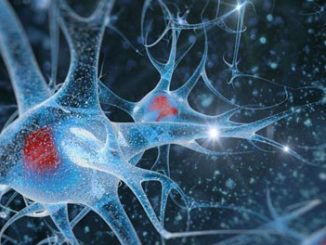Articles that explore the connection between epigenetics and diseases and disorders, including cancer, cardiovascular disease, diabetes, autoimmune disease, and more.
Although kidney stones are common and often cause excruciating pain, there are few options for treatment and a surprising lack of drugs to medicate the condition. In a previous blog post we discussed how a drug that was already being used to treat multiple sclerosis showed promising results for removing painful memories of those who experienced trauma. Now, a new mouse study at the Washington University School of Medicine in St. Louis indicates that a class of drugs which have [more…]
Stress affects everyone differently – some people perform well and can adapt under stress but for others it can be severely debilitating. A previous blog article highlighted stress-related research that uncovered a connection between the common epigenetic mechanism DNA methylation and serotonin gene expression. Now, new research from Rockefeller University further expands our understanding of stress and how epigenetic molecular mechanisms may contribute to stress-related disorders. By using mice with similar genetic makeup and investigating the epigenetic mechanism known as [more…]
Researchers from Rush University Medical Center and Brigham and Women’s Hospital (BWH) conducted a study recently demonstrating how an epigenetic alteration to DNA of the brain is connected to Alzheimer’s disease. The team looked at DNA methylation, which is an epigenetic mechanism that occurs when a methyl group is added to the cytosine or adenine of DNA. This epigenetic mechanism, as well as others such as DNA demethylation and histone acetylation, have the ability to turn on or off genes. [more…]
If a woman could get a blood test telling her whether or not she’s likely to develop breast cancer, preventative measures could be taken, doctors could monitor her health, and she could explore potential options even before the cancer has started. A blood test like this could be possible as a result of new research by University College London (UCL) scientists, led by Professor Martin Widschwendter, head of the UCL Department of Women’s Cancer. The research team, whose study was [more…]
New research suggests that when patterns of blood flow are disturbed, epigenetic changes occur to the genes in the cells lining blood vessels, contributing to hardening of the arteries, otherwise known as atherosclerosis. Characterized by the accumulation of inflammatory cells and fats in arteries, this disease often precedes strokes and heart attacks. Blood flow and the natural curves of the arteries are known to dictate where atherosclerotic plaques develop. Along with his colleagues, Hanjoong Jo, a biomedical engineer and professor [more…]
Scientists at the Virginia Commonwealth University School of Medicine discovered that the drug fingolimod, which is used to treat multiple sclerosis (MS), could potentially benefit individuals who wish to get rid of painful and traumatic memories. While MS is still not entirely understood, the disease involves a process that is immune-mediated in which the immune system attacks healthy parts of the body, namely the central nervous system – the spinal cord, brain, and optic nerves. Fingolimod, or FTY720, is a [more…]
Scientists at the Fred Hutchinson Cancer Research Center found that mice lacking one copy of a gene called CTCF have abnormal DNA methylation and are markedly predisposed to cancer. This ground-breaking research helps solve a mystery that has loomed for over 30 years – which gene or genes cause the frequent loss of one copy of chromosome 16 in breast cancer cells. Dr. Gala Flippova, staff scientist at Fred Hutchinson, and his colleagues originally cloned the CTCF gene and mapped [more…]
A study conducted at Georgia State University and the University of Georgia gives us novel insight into the chemoresistance of ovarian cancer and offers a potential therapeutic approach to overcoming it. Inhibiting enzymes that lead to changes in gene expression could decrease chemotherapy resistance in ovarian cancer patients, researchers say. Dr. Susanna Greer and her colleagues have identified two enzymes that suppress proteins that regulate cell survival and chemoresistance in ovarian cancer. Ovarian cancer is the deadliest of all gynecologic [more…]
Injury to tissue in major organs such as the kidney causes inflammation which can lead to cell damage or cell death in the affected area. The human body is programmed with a normal physiological wound repair process for the damaged tissue – similar to the formation of a scar when we injure or damage our skin. Normally, once the injury has been contained, the wound repair process stops. Fibrosis is a pathological process similar to normal tissue wound repair; however, [more…]
Is it possible for a drug to dampen a traumatic memory? It may be, as researchers are discovering that a fundamental epigenetic mechanism is responsible for long-term fear memory. Neuroplasticity, also called brain plasticity, refers to the changes in neural connections such as synapses and neural pathways as a result of changes in behavior, environmental exposure and neural processes (1,2). While it was once believed that the brain is a physiologically static organ and its networks were fixed, research over [more…]











